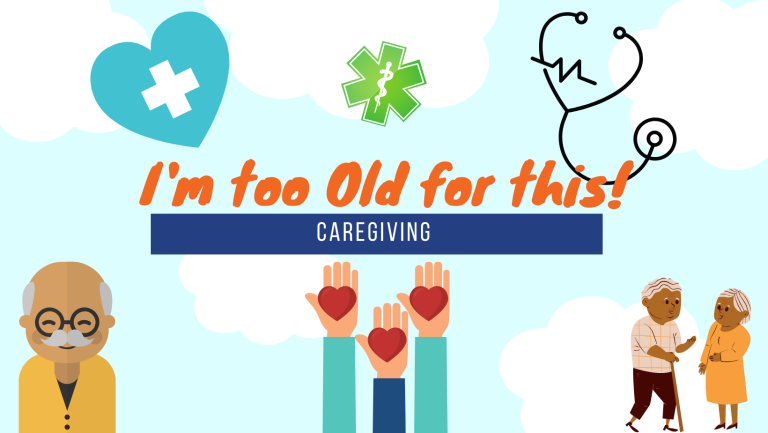
Jesus said: “No one has greater love than the one who gives his life for his friends.” (John 15:13). A caregiver sacrifices his or her time, energy, and love every day. The attributes of Christ, His mercy and compassion, are all critical to caregiving. While we can never measure up to His example perfectly, we should always remember that caregivers aren’t just doing good work—they are doing God’s work, exemplified in Christ.
§ Read Ruth 1:1-22
After Naomi’s sons and husband die in Moab, she releases her daughters-in-law back to the families. But Ruth “clings” to Naomi and refuses to leave her. Her decision to go with Naomi was a great sacrifice. Rather than remarry among her own people, Ruth leaves her homeland and goes to Israel as a widow, the very lowest member of that society. Still, Ruth dutifully goes out to the fields and provides for herself and her mother-in-law. It is an act of great courage on her part, as well as a loving sacrifice—to care for the needs of Naomi, while her own future was anything but secure.
Caring for a family member can be very rewarding, but it is also hard work; and caregivers are often filled with conflicting emotions. Caregiving often means sacrificing one’s own pastimes and plans for the good of someone else. Women who provide long-term care for a chronically ill loved one often suffer serious long-term financial consequences — including reduced Social Security, pension, and retirement income — as a result of reduced time in the workforce. Who are the caregivers? There are at least 44.4 million caregivers in the United States, according to a new study conducted for the National Alliance for Caregiving and AARP and funded by the MetLife Foundation. The study found that caregivers are desperate for support. Two-thirds of those surveyed said they need help or information on at least one of fourteen activities or issues they commonly face.
- The average caregiver is a 46-year-old married woman who works outside the home earning an annual income of $35,000.
- The value of informal caregiving provided by women in the U.S. is in the range of $148-$188 billion annually.
- Women are likely to spend a total average of twelve years out of the workforce raising children and caring for an older relative or friend.
- About 39 percent of caregivers are men.
- Thirty-three percent of working women decreased their work hours to care for a chronically ill loved one; 29 percent passed up a job promotion, training, or assignment; 16 percent quit their jobs; and 13 percent retired early.
- People who provide care for an ill or disabled spouse are six times as likely to suffer symptoms of depression or anxiety as those who had no caregiving responsibilities.
- Twenty-five percent of caregivers report health problems resulting from their caregiving activities.
- Many caregivers report feeling a stronger sense of purpose in life than their non-caregiving peers, as well as more autonomy and personal growth.
It has been said that there are three categories of people in the world: caregivers, former-caregivers, and some-day caregivers. There is no doubt that all of us will face decisions relating to caregiving in our lives and chances are someone close to us are represented in the statistics above. Jesus himself provides for us a model of caregiving that is particularly powerful:
“When Jesus saw his mother and the disciple whom he loved standing beside her, he said to his mother, ‘Woman, here is your son.’ Then he said to the disciple, ‘Here is your mother.’ And from that hour, this disciple took her into his own home” (John 19: 26,27).
Even as Jesus hung on the cross, despite his own agony and pain, he looked down, saw his mother, and had compassion for her. Before he died, Jesus entrusted his mother’s care to another disciple. Jesus was concerned about his mother’s well-being; and before he died, he made certain his mother was being cared for.
Questions to consider this week:
§ Consider how you could encourage or support a caregiving you know this week. If you are a caregiver currently, how could you use help this day?
§ Have you engaged in honest and fruitful conversations about the future plans for the loved ones in your life?
*A Note for current and past caregivers
You caregiver, have sacrificed much to be a loving caregiver to your loved one. You have done this even at times when little appreciation was shown in return for your actions. You have most likely not been a perfect caregiver. You may have even been impatient at times. Yet you have persevered in what you felt God was calling you to do. You have been willing to forgo your own comfort and security for the love and commitment you have for your loved one.
Dear Christian caregiver, God, our Redeemer, will bless you and protect you; as God did Ruth. Your work is (was) so very important, even though it appears overwhelming and hopeless at times. Trust in God’s ability to bless your efforts and lean on Jesus’ example of the great physician and caregiver of us all.
